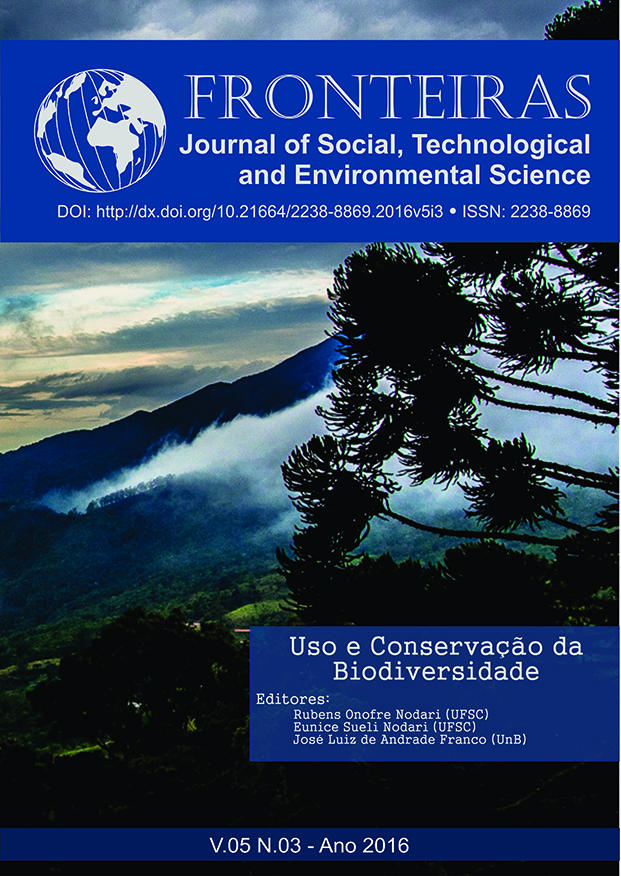Los Procesos de Participación Periférica Legítima en Dos Contextos Diversos
DOI:
https://doi.org/10.21664/2238-8869.2016v5i3.p205-218Resumo
Este escrito enmarcado desde la teoría situada del aprendizaje intenta describir los procesos de participación periférica legítima que se desarrollan en dos contextos diversos de aprendizaje. Los datos de este estudio se recabaron mediante la observación, por un lado de actividades que se generaron desde un contexto no formal de aprendizaje, una asociación de diabetes; haciendo énfasis en un campamento de educación diabetológica que se desarrolló en 2013, y por otro lado, se recolectaron datos desde las situaciones de aprendizaje que se desarrollaron en un contexto formal de aprendizaje como un taller de producción de noticias durante el año 2015. Los resultados hallados indican que estos contextos, con sus diversas características y de diferente naturaleza, desde la teoría social del aprendizaje fomentan el despliegue de aspectos que se relacionan estrechamente con conceptos relativos a los procesos identitarios y a las trayectorias de participación de los participantes.Referências
Barron B, Bell P 2016. Learning enviroments in and out of school. In L Corno, E Anderman, Handbook of Educational Psychology. Third Edition, Routledge, New York, p. 323-335.
Cobo Romaní C, Moravec J 2011. Aprendizaje Invisible. Hacia una nueva ecología de la educación. Col lecció Transmedia XXI. Laboratori de MitjansInteractius / Publicacions iEdicions de la Universitat de Barcelona, Barcelona, 239 pp.
Fuhrer U 2002. Análisis del aprendizaje situado según el ambiente de comportamiento: el caso de los novatos. In S Chaiklin & J Lave, Estudiar las prácticas. Perspectivas sobre actividad y contexto, Amorrortu, Buenos Aires, p.197-231.
Gladwell M 2007. Inteligencia intuitiva: ¿Por qué sabemos la verdad en dos segundos? Punto de Lectura, Buenos Aires, 328 pp.
Gudolle L, Antonello C, Flach L 2012. Aprendizagem situada, participação e legitimidade nas práticas de trabalho. RAM, Rev. Adm. Mackenzie, (13):14-39. Available from: http://www.scielo.br/pdf/ram/ v13n1/a02v13n1.pdf.
Henning P 2004. Everyday cognition and situated learning. In D Jonassen, Handbook of Research on Educational Communications and Technology, Lawrence Erlbaum Associates, Mahwah NJ, p. 143-168.
Kirshner D, Whitson J 1997. Situated Cognition. Social, semiotic, and psychological perspectives, Lawrence Erlbaum Associates, Mahwah, NJ, 323 pp.
Lave J 1991. La cognición en la práctica, Paidós, Barcelona, 225 pp.
Lave J 1997. The culture of acquisition and the practice of understanding. In D Kirshner & J Whitson, Situated Cognition. Social, semiotic, and psychological perspectives, Lawrence Erlbaum Associates, Mahwah NJ, p. 17-35.
Lave J 2002. La práctica del aprendizaje. In S Chaiklin & J Lave, Estudiar las prácticas. Perspectivas sobre actividad y contexto, Amorrortu, Buenos Aires, p. 15-45.
Lave J, Wenger E 1991. Situated Learning: Legitimate Peripheral Participation. Cambridge University Press, Cambridge UK, 139 pp.
Martín R B 2015. Las comunidades de aprendizaje en contextos de formación formales y no formales, PhD Thesis, Universidad Nacional de San Luis, San Luis, Argentina, 245pp.
Martín RB, Vaja AB, Paoloni PV Emociones y participación en contextos no formales. Los casos de un taller de tejido y un curso de Socorristas. R Profesorado, 19(2):185-202. Available from: http://www.ugr.es/~recfpro/rev192ART11.pdf.
Martín RB 2013. Contextos de aprendizaje. Formales, no formales e informales. IKASTORRATZA e-Revista de Didáctica, (12):1–14. Available from: http://www.ehu.eus/ikastorratza/12_alea/contextos.pdf.
Martín RB, Paoloni PV, Ordoñez GR 2014. Trayectorias de participación en una comunidad de aprendizaje. El caso de un curso de Formación Profesional de Guardavidas. R Forum FQS Qualitative social research, 15(3):1-20. Available from: http://www.qualitative-research.net/index.php/fqs/article/ view/2079.
Martín RB, Rinaudo MC, Paoloni PV 2011. Comunidades de aprendizaje en contextos no formales. La experiencia de un taller de tejido. Rev Actualidades Investigativas en Educación, 11:1–23. DOI: http://dx.doi.org/10.15517/aie.v11i3.10221.
McCaslin M 2009. Co-regulation of student motivation and emergent identity. Educational Psychologist, 44(2): 137-146.
Organización Mundial de la Salud [http://www.who.int/es/] Ginebra [updated 2015 jan; cited 2016 fev] Available from: http://www.who.int/topics/diabetes_mellitus/es/.
Rinaudo MC 2014. Estudios sobre los contextos de aprendizaje. Arenas y fronteras. In P Paoloni, M Rinaudo, A González Fernández, Cuestiones en Psicología Educacional: cuestiones teóricas, metodológicas y estudios de campo, Sociedad Latinoamericana de Comunicación Social (SLCS), Tenerife, p. 163-205. Available from: http://issuu.com/revistalatinadecomunicacion/docs/cde01.
Rogoff B, Lave J 1984. Everyday Cognition: Development in Social Context, Harvard University Press, Cambridge, 324 pp.
Smitter Y 2006. Hacia una perspectiva sistemática de la Educación no formal. Laurus, Revista de Educación, 12(22): 241-256.
Streibel M 1993. Diseño instructivo y aprendizaje situado: ¿es posible un maridaje? In R McClintock, M Streibel, G Vázquez Gómez, Comunicación, tecnología y diseños de instrucción: la construcción del conocimiento escolar y el uso de los ordenadores, Centro de Publicaciones del Ministerio de Educación y Ciencia, Madrid, p. 77-103.
Trilla J, Gros B, López F, Martín MJ 2003. La educación fuera de la escuela. Ámbitos no formales y Educación Social, Ariel Educación, Barcelona, 276 pp.
Wenger E 2001. Comunidades de práctica. Aprendizaje, significado e identidad, Paidos Ibérica, S. A., Barcelona, 348 pp.
Wenger E 2006. [http://wenger-trayner.com/] Communities of practice. A brief introduction [updated 2006; cited 2016 fev] Available from: http://wenger-trayner.com/introduction-to-communities-of-practice/.
Wenger E 2010a. Communities of practice and social learning systems: The career of a concept. En C Blackmore, Social learning systems and communities of practice, Springer, Londres, p.179-198.
Wenger E 2010b. Conceptual tools for CoPs as social learning systems: boundaries, identity, trajectories and participation. In C Blackmore, Social Learning System and communities of practices, Springer, Londres: p. 125-143.
Downloads
Publicado
Como Citar
Edição
Seção
Licença
Esta revista oferece acesso livre imediato ao seu conteúdo, seguindo o princípio de que disponibilizar gratuitamente o conhecimento científico ao público proporciona maior democratização mundial do conhecimento.
A partir da publicação realizada na revista os autores possuem copyright e direitos de publicação de seus artigos sem restrições.
A Revista Fronteiras: Journal of Social, Technological and Environmental Science segue os preceitos legais da licença Creative Commons - Atribuição-NãoComercial 4.0 Internacional.


